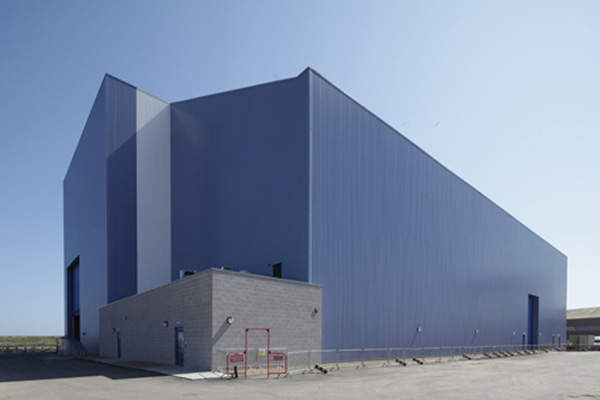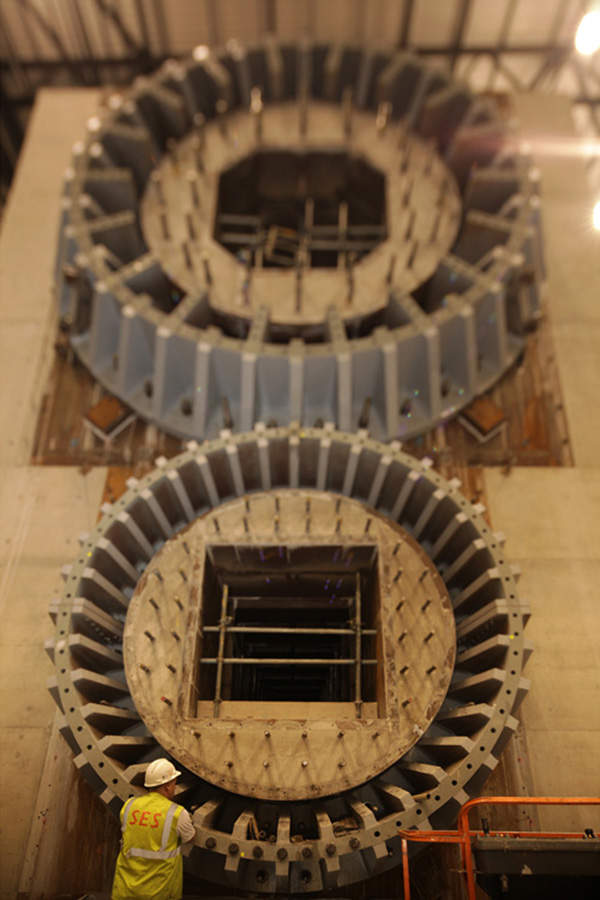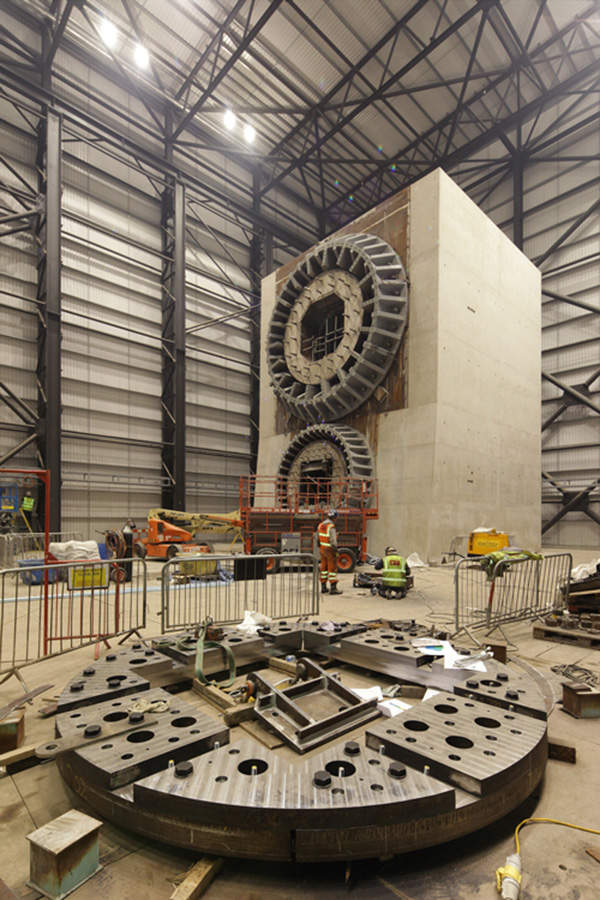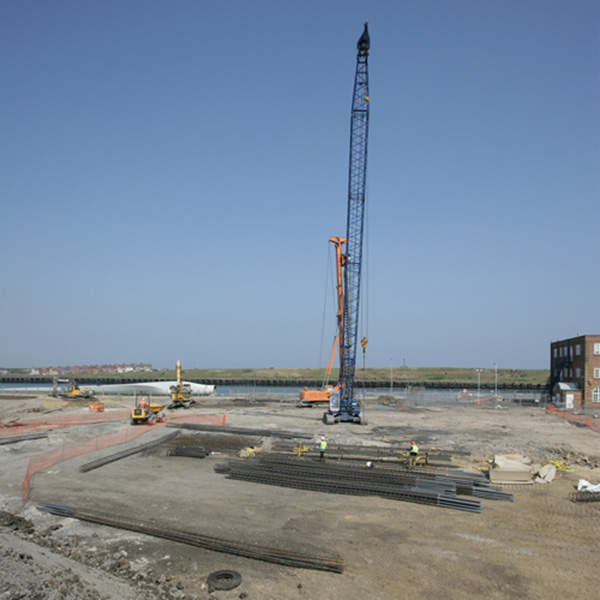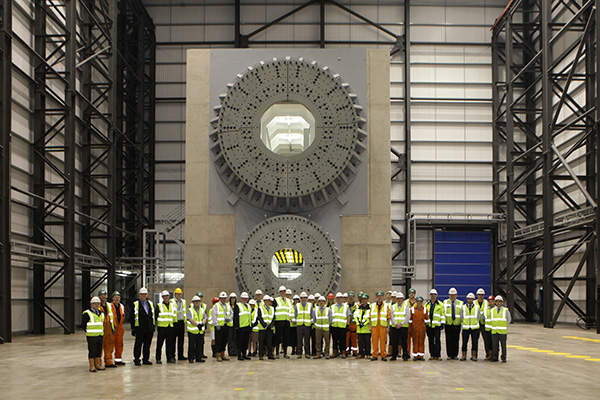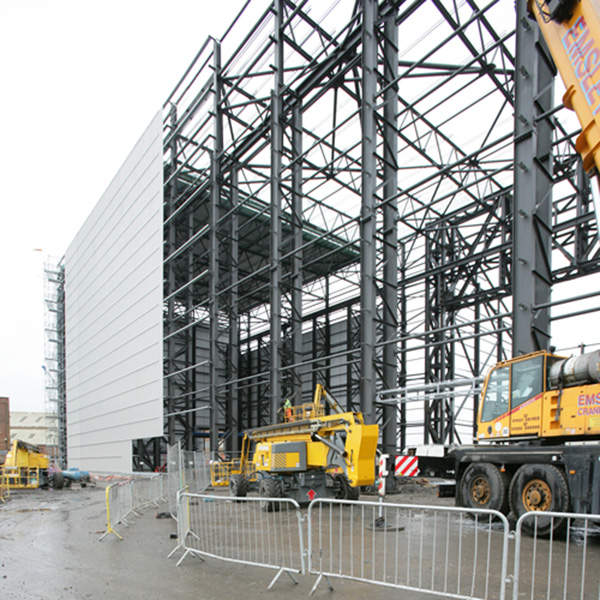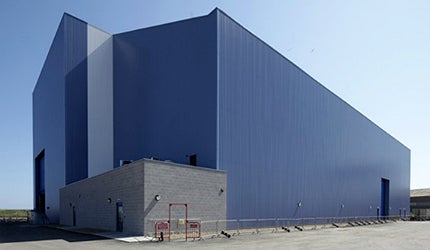
The Blyth offshore wind turbine blade test facility is located in Northumberland, in the UK. It is the second blade test facility being built at the National Renewable Energy Centre (Narec). The first facility, which was opened in 2005, can test 50m long blades. The new facility can, however, test up to 100m long blades.
The 5,700 square metre (61,354 square feet) facility will be the largest test facility in the world. Narec will start commercial operation of the facility at the beginning of 2013. It is planning to achieve ISO17025 accreditation for the facility.
Need for Narec’s test facility in Blyth
The project is part of a $129m (£80m) investment by Narec on testing facilities for offshore renewable energy technologies.
Offshore turbine blade manufacturers can test their blade prototypes at the facility and meliorate the design, before they are taken to the offshore location.
It will create better opportunities for blade developers to grow, improve efficiency and become reliable in the market, before the wind turbines turn to offshore operations.
Details of the wind turbine blade test facility
The blade test facility comprises of a blade test hub and equipment, a main structure to accommodate the hub and equipment, and a pitch bearing testing system.
The main building is 123m long and the test hub is 15m high, with two huge rings. The top ring is of eight metres in diameter. The bottom ring is smaller and will be used to test blades with smaller root diameters.
In order to position the rings accurately in the concrete structure, 216 post-tensioned bars have been placed.
A total of six static winches are fixed to 132 steel rings on the floor that will be used to bend the blades during testing.
The facility will be able to position 15 individual turbines in three arrays. During testing the turbines will be connected to the grid. Both dynamic and static tests can be performed rigorously.
Constructing the Northumberland-based complex
Construction of the blade test facility was started in December 2009 and completed in August 2012.
The construction was highly focused towards the testing technology and the challenges of testing longer and a higher number of blades.
Contractors involved with Narec’s project
Shepherd Construction constructed the steel structure of the new testing facility. It delivered the project in August 2012, after close collaboration with Narec’s project team. Converteam and MTS System formed a consortium to design, develop and commission the test rig for the test facility. The consortium will be responsible for the delivery of mechanical elements of the test bench.
Converteam was also selected as the technical leader for the wind turbine testing centre. Under the contract, it will supply a 15MW, 10rpm direct drive motor with a MV7000 variable speed drive unit.
Red Box Design was the architect of the facility. The design team employed Turner & Townsend for project management and cost management services.
Finley Structures was subcontracted by Shepherd Construction to fabricate and erect the steel frame of the test facility. Arup was the structural engineer. SES was the mechanical and electrical works contractor.
Moog Industrial Group was awarded a contract to supply a test system, test controller and a power unit comprised of six Moog RKP Radial Piston Pumps. The system will be used to evaluate and test the wind turbine blades under dynamic loading conditions.
Financing the world’s largest blade test facility
The test facility is jointly funded to the tune of $18m (£11.5m) by the Department for Business, Innovation and Skills, along with the Department for Energy and Climate Change.
One North East, a regional development agency, has supported the project with $5m (£3.5m) of funding. The European Regional Development Fund (ERDF) has invested $7m (£4.7m).
Related content
AK-1000 Tidal Turbine Project, Scotland, United Kingdom
Atlantis Resource Corporation redeployed the AK-1000 tidal turbine at the European Marine Energy Centre (EMEC) in Orkney, Scotland, in August 2011.
Burbo Offshore Wind Farm, UK
Twenty five 3.6MW wind turbines have been installed at the 90MW Burbo Offshore Wind Farm in Liverpool Bay, Wales.
Centrica Lincs Offshore Wind Project, Lincolnshire
The Lincs offshore wind farm is one of the five renewable projects under development by Centrica Renewable Energy (Centrica) in the Greater Wash.
Round table: offshore wind cost cutting measures discussed
A UK industry-led task force has made recommendations on how the cost of offshore wind can be reduced. We ask industry experts what they think of these proposals and whether they go far enough in slashing the price of power production.

